Obsidian Kingdom | Interview
Obsidian Kingdom is devoted to exploring the boundaries of rock music. The Barcelonan band defies classification to this very day, drawing equally on progressive rock, post-metal, alternative and electronic music. However hard to pigeonhole, it remains consistent with delivering exciting content that never fails to surprise the audience.
Their fourth album, ‘MEAT MACHINE’ is a frantic attempt at self-discovery, through a head-first plunge into the anxiety derived from sexual frustration, the absurd of reality and the inherent cruelty of a mechanized world. It is an emotional roller-coaster featuring an abrasive and overwhelming sound that draws equally from noise and art rock, post metal and late 90s alternative music.
“Strident, varied, alarming and unexpected”
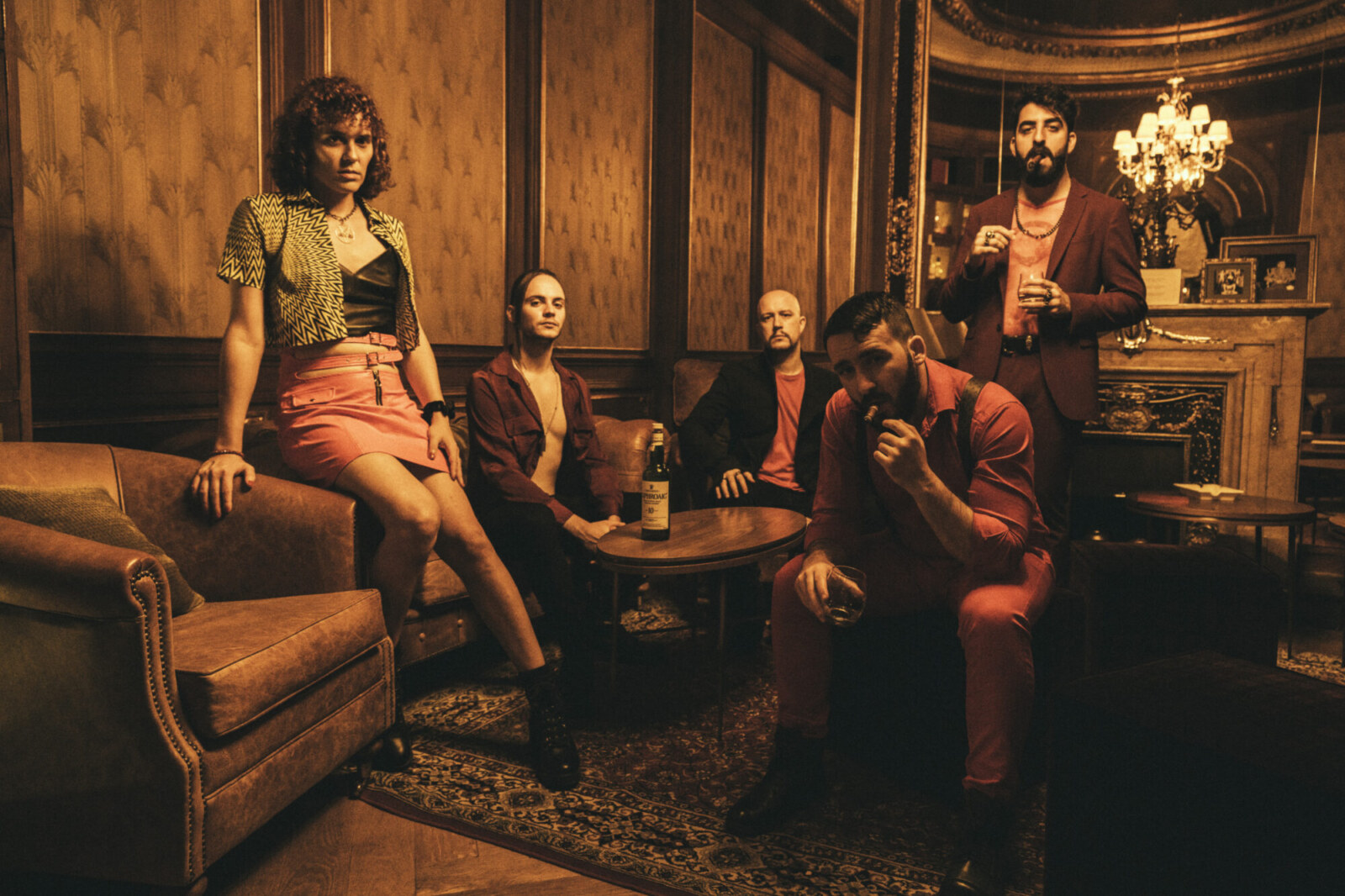
‘MEAT MACHINE’ is your latest album (released by Season Of Mist). The artwork is striking! Is there a certain art concept behind it?
Edgar Merigó: Thanks! The artwork was produced by our long-time partners in crime Elena Gallén and Ritxi Ostáriz. It is inhabited by weird characters that seem to have spawned out of a bad dream or a painting by Magritte – they feel modern and timeless at the same time, like out of place but under the spotlight, as elegant as they are repulsive.
We were aiming for a shocking look that went along with the music – strident, varied, alarming and unexpected. Pure colours with and excess of red was perfect for that, since it is also the colour of passion, of love and of blood, which are the album’s main topics. At the same time, the collage style of the illustrations bears a certain resemblance with how we write songs – by a system of patchwork, sewing together improbable pieces that gain a new meaning when they are put together.
Furthermore, the importance that we’ve given to typography this time has to do with the weight of the lyrics – in the past, we’ve played with rather vague poetical allegories, but on ‘MEAT MACHINE’ the content is much more explicit and loud, and still it sounds rushed and confused. Hence the use of capital letters only and the elimination of paragraphs and punctuation marks.
“The strange interconnections between the physical and the immaterial world”
After a couple of listens I think the album tells a story, a very frustrating one.
You are right about the frustration – most of the songs carry an undertone of confusion and unsatisfied desire. It may be a reflection of how much work and tears went into the making of the album…
There is not any linear story behind it, however, at least in terms of narrative. It is rather a collection of songs bound together by a common theme: the energies that fuel the meat machine. Contrary to what the title might suggest, we’ve found that most of those energies are quite intangible: emotions, sexual urges, social constructs and subconscious impulses. So the album basically circles around the strange interconnections between the physical and the immaterial world. We’ve used our own personal experiences to reflect on topics such as power dynamics, consumerism, spirituality, transcendence and the meaning of life. Quite pretentious, we know.
Can you share some further details how your latest album ‘MEAT MACHINE’ was recorded?
The album was originally meant to be a full-on electronic exercise. We spent almost a year pre-producing it, and once it was done, we showed it to our producer Jorge Mur. He found it utterly uninteresting and lame, and told us straight away that if we planned to stick to that project, he was out. And since we trust him so much, we decided to start anew, which took us another year…
The second proposal was much closer to what you can hear on the album and felt much more in tune, so we went ahead and pre-recorded that. The approach was much more rock-oriented, even though we did keep the themes, the tempos and a lot of synths – that is one of the reasons why the album sounds weird for metal standards.
The recording was quite demanding and, before it was done, our singer and guitar player Irene decided to leave the band. Now, what you might not know is that initially she was singing five of the ten songs in the album, so we were faced with a difficult decision: either we kept the songs as they were, aware that we would never be able to play them live; or we re-arranged and re-recorded them in a rush since we were already way out of studio time. We chose the latter, but had to keep ‘FLESH WORLD’ and ‘A FOE’ as they were, both because we thought they were already the best songs they could be and also because no one in the band could hit her vocal range in them.
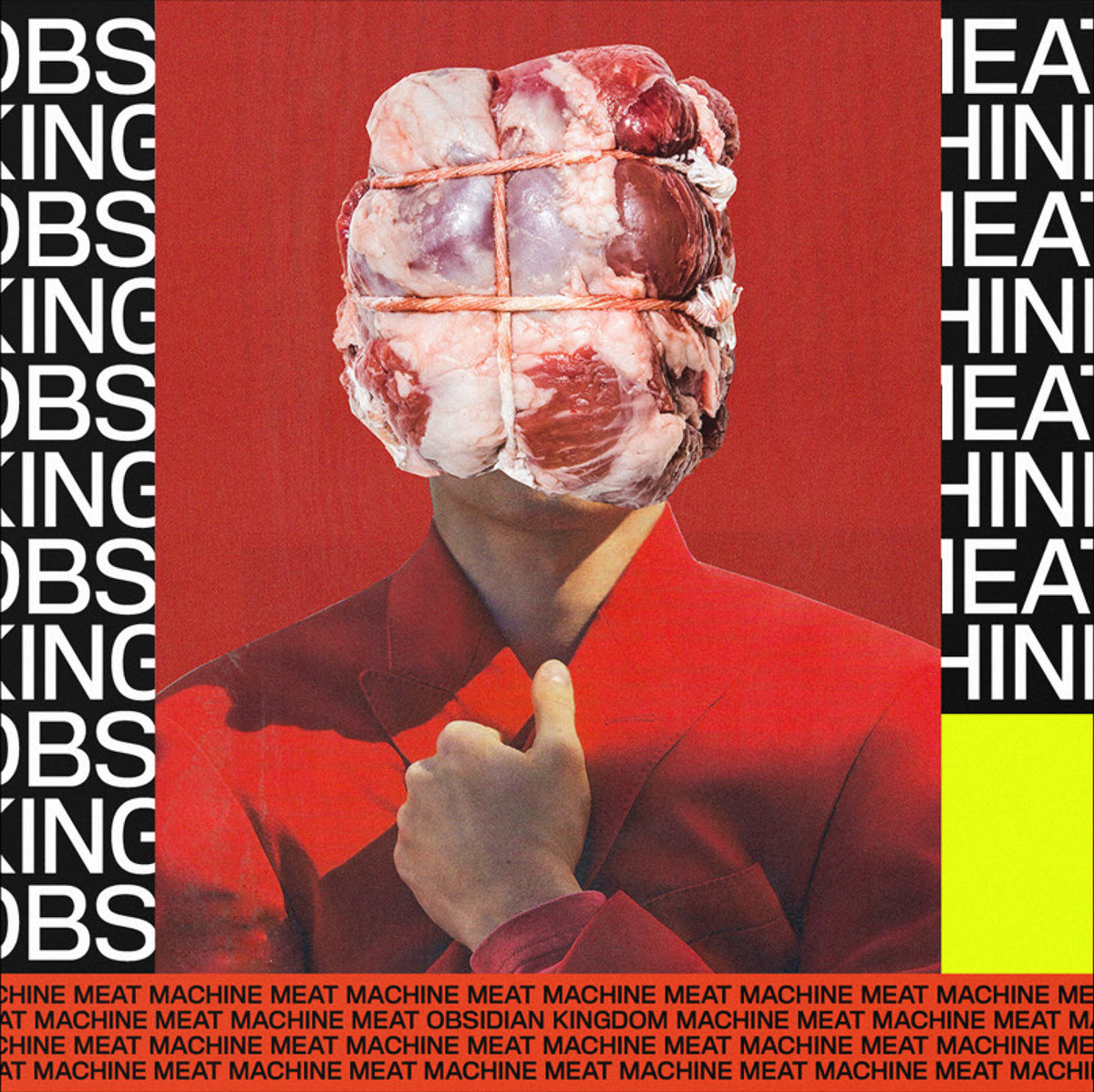
All in all we believe that is was worth it, but it certainly wasn’t a pleasure cruise.
How pleased were you with the sound of the album?
Very much so, we think that both Jorge and Mr Ax did an outstanding job in terms of production. We really needed the album pack a punch in some parts and feel fragile in others, often in a fast succession. Designing a versatile sound that could unify the different dynamics of the recording was very tricky, but they pulled it off to perfection. We’re especially satisfied with the rhythm section – it sounds groovy, heavy and nuanced.
We’ve strived for a sound that would channel both the aggression and the complexity of the issues at hand, that would feel powerful and abrasive but at the same time adventurous and quirky. For the most part it features roaring and distorted industrial rock, but it often transits to weird soundscapes that feel more akin to synth pop or a horror movie soundtrack. We had no clear agenda in terms of style when we were writing it, to be honest. It’s more like we were desperately chasing something that was rapidly tumbling down the stairs.
You got signed to Season Of Mist for your previous album, ‘A Year With No Summer’. How would you compare it to your newest album? What are some of the differences?
Season of Mist actually signed us in for the re-edition of ‘Mantiis’, so strictly speaking this is our third album with them.
‘MEAT MACHINE’ is certainly more playful than ‘A Year With No Summer’ was, because the latter is a very constrained, depressed record in which we tried to portray a certain feeling under a limited style guide. When writing our latest album we let the ideas flow freely and just went along to what started to develop from them organically, much like what we did when writing our debut. Our sophomore had a more strict script because of the narrower range of emotions and ideas that we wanted to address.
“Hard-to-classify heavy sound with plenty of contrast”
One might say that you’re exploring the boundaries of rock music. How would you describe your sound?
It is really difficult for us to put our finger down on the music the make, since it is so varied and ever-changing. We’ve come up with a short definition that tries to sum it up: ‘hard-to-classify heavy sound with plenty of contrast’. However, no matter how unclassifiable we might be, we have to admit that we play some kind of rock / metal. I guess that the tags ‘progressive’ and ‘experimental’ suit us just fine, precisely because they have come to define the kind of rock music that doesn’t sit well with the other, more specific, categories.
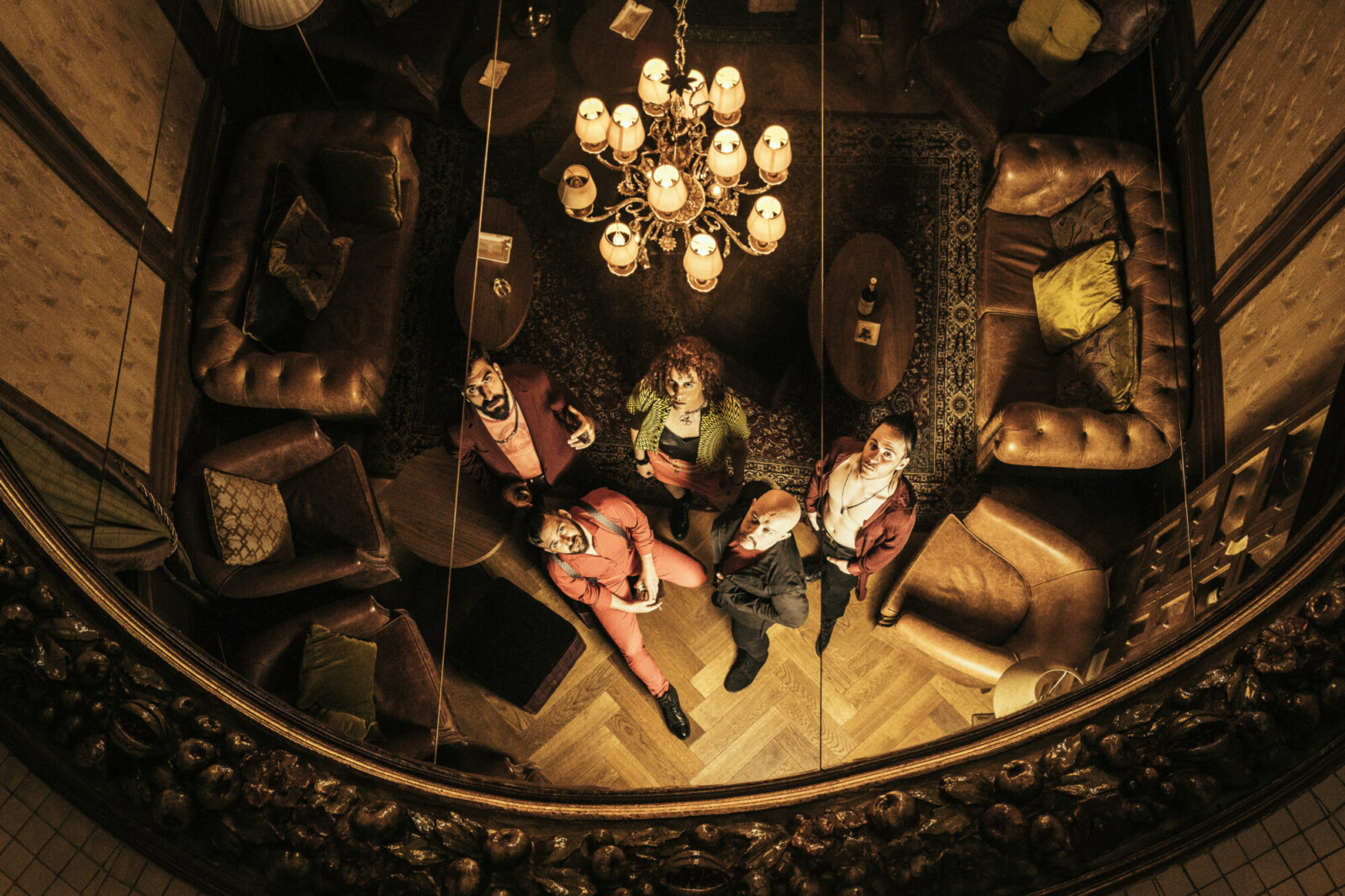
What are some of the bands that influenced you to start Obsidian Kingdom? How did you decide to choose the name of the band?
I guess we have to go back to the bands that influenced me in my teens. I was listening to a lot of grunge and alternative music back then, in the vein of Nirvana, Soundgarden, The Smashing Pumpkins, Marilyn Manson, Nine Inch Nails, Tool and the like. I’m definitely a nineties kid and you could say that I grew up on MTV…
But by the time I founded the band I was almost only listening to Black Metal, mostly from the second wave, like Satyricon, Gorgoroth, Immortal or Mayhem; some Thrash Metal like Slayer and Kreator and some Death Metal too, especially from Florida, such as Deicide and Morbid Angel. Post-Metal had a huge impact on me when it came out, and just around the release of our debut I was totally strung out on things like ISIS, Neurosis, Cult of Luna and Baroness. Oh, and I’ve always been really keen on Dark Ambient; things like Raison d’Être, Inade, Asmorod and Ataraxia have always been spinning in my player. I guess that you can hear all of those influences in Obsidian Kingdom at some point.
As in most aspects of the band, our name does not necessarily have a specific meaning, but is rather an impressionistic idea designed to trigger images in the brain of the listener. It is an evocative concept that brings together violence and beauty, mystery and heaviness, sex and destruction. A different universe, as seductive as it is dangerous.
You’re living in Spain, in Barcelona to be particular. How are you coping with the current pandemic and what are your predictions for the future? Do you think the music industry will adapt to it?
We’re currently shifting between different phases of lockdown, with all the ubiquitous social distancing measures: face masks, hydrogel, support bubbles, etc. Mostly like everywhere else, I guess. The situation is dire, especially for show business and scenic arts… We have been very lucky, though: next week we’re headlining an open air festival in Barcelona and very recently we have announced a tour with Enslaved in May. But who knows what the future will bring; uncertainty is the name of the game right now.
Well, the music industry has no other option than to adapt… Things may not be so bad for music labels and online retailers right now, but they are quite apocalyptic for agents, promoters and artists (especially the small ones like us). There have been contingency measures like live streams, living-room covers and things of like, but we all know that that can only go on for so long. Without live music, upcoming bands cannot properly promote their releases or sell merch, and that means the extinction of the bread and butter of the business. So let’s hope it comes back real soon.
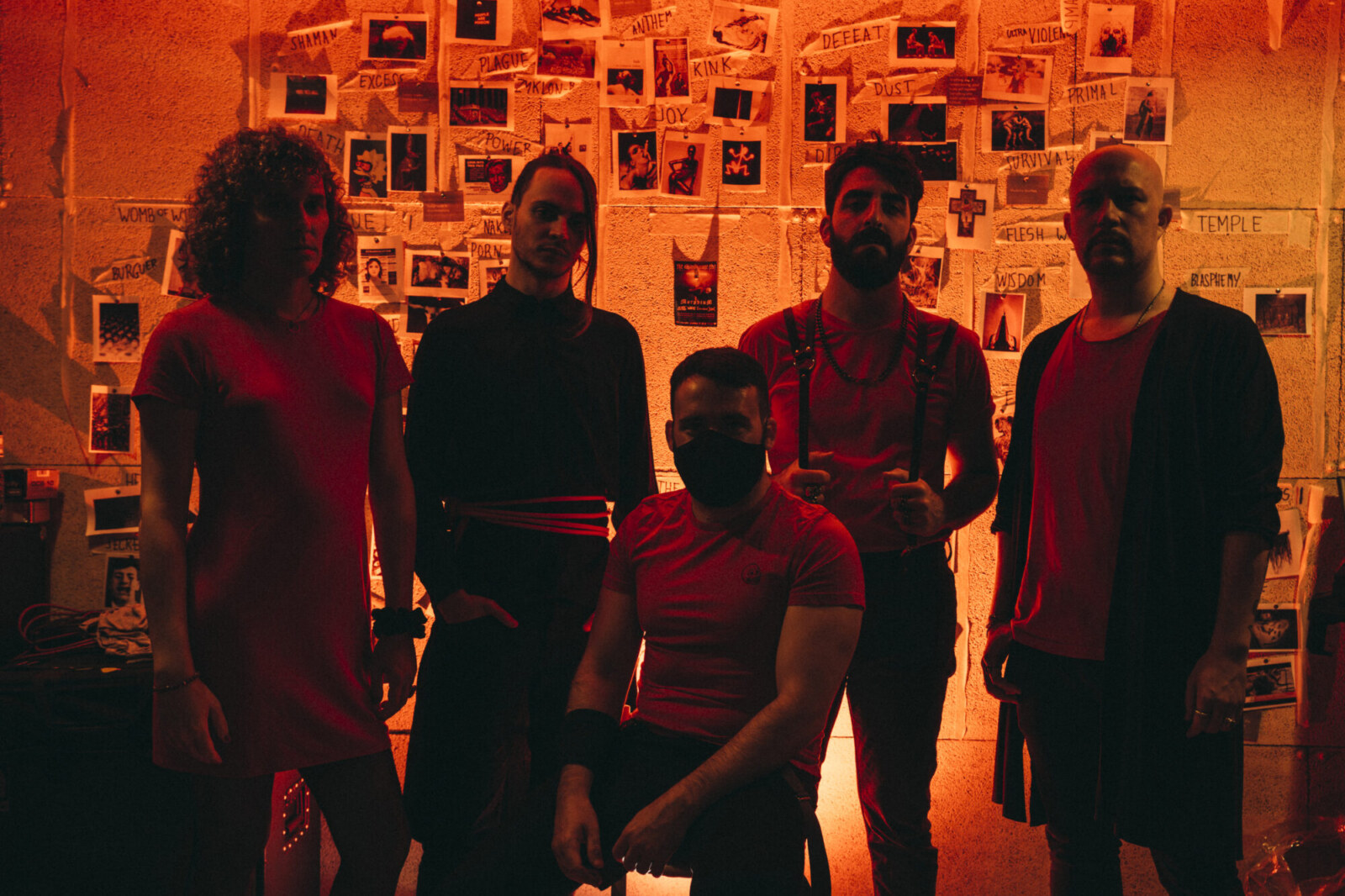
Are any of you involved in any other bands or do you have any active side-projects going on at this point?
Jaime is currently involved in Irene’s new solo project, Lys Morke, and Judit also has her own solo endeavour, called Judit K. Both bands are still at a very early stage of development, though. Obsidian Kingdom really sucks up most of our free time!
Let’s end this interview with some of your favourite albums. Have you found something new lately you would like to recommend to our readers?
I can certainly recommend some of the albums that inspired ‘MEAT MACHINE’: Ulver’s ‘Assassination of Julius Caesar’, taught us the bravery to step into unknown territories and just naturally follow our curiosity; Scott Walker’s ‘The Drift’ has always been by our bedside, and from it we take the sense of dreadful drama and how the lesson to communicate the mystery through riddles; anything from Death Grips, but mostly ‘The Money Store’ and ‘No Love Deep Web’, both violently bizarre and with that admirable “anything goes” attitude; and one of the albums that has shocked the most in the last decade: Daughters’ ‘You Won’t Get What You Want’, of which we’ve tried to emulate its cathartic negativity and ability to terrorize.
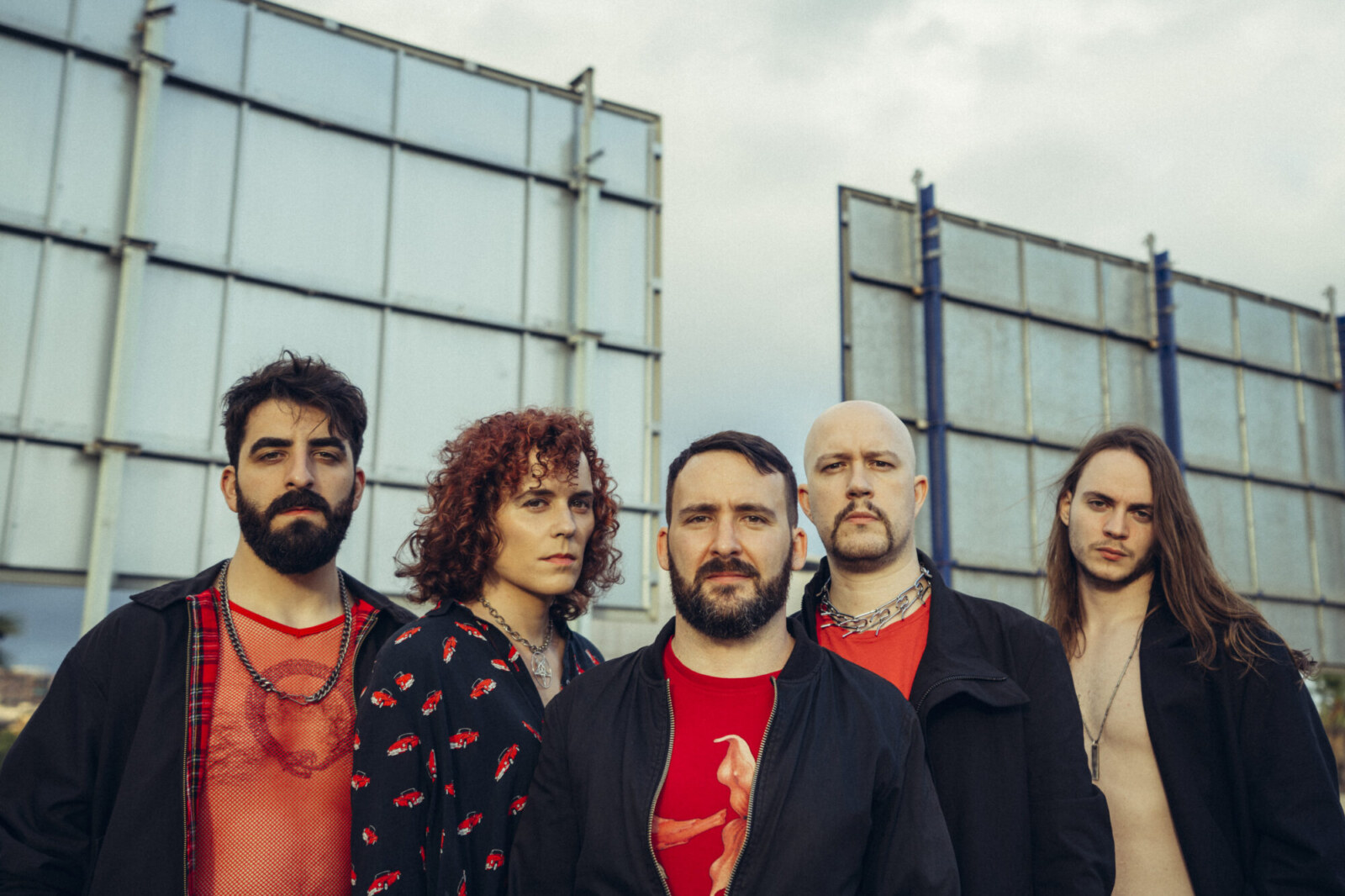
Thank you. Last word is yours.
WATCH OUT WHAT YOU SEED IN OTHERS
Klemen Breznikar
Obsidian Kingdom Official Website / Facebook / Instagram / Twitter / Bandcamp / YouTube
Season Of Mist Official Website / Facebook / Instagram / Twitter / Bandcamp / YouTube



